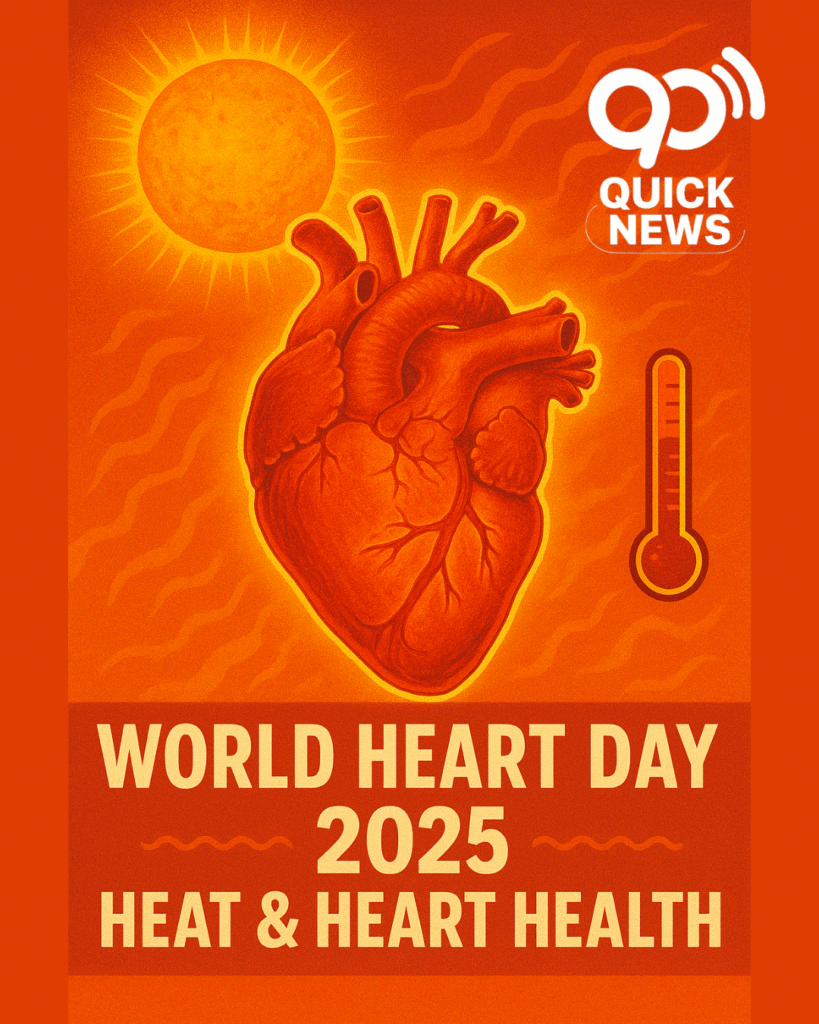As World Heart Day (September 29) is marked globally, health experts are warning about the dangerous link between extreme heat and heart health, especially for people with pre-existing cardiovascular conditions. With Pakistan and the Gulf regions experiencing record-breaking summer temperatures, the risk of heart-related emergencies has increased significantly.
Cardiovascular disease (CVD) is already the leading cause of death worldwide, responsible for over one-third of all fatalities, according to the World Heart Federation. The situation becomes even more alarming during hot weather, as heat waves put added strain on individuals with high blood pressure, diabetes, obesity, and other cardiovascular risk factors.
Doctors report a predictable surge in heart attacks, strokes, and heart failure cases during extreme summers. However, many people remain undiagnosed until a major episode occurs — making prevention and early detection crucial. Modern science now allows healthcare providers to identify cardiovascular risks and heart failure long before symptoms appear, using advanced diagnostic tools and biomarkers.
Unfortunately, many of these early warning signs go unnoticed, which leads to late interventions and higher mortality rates. Timely testing, proactive management, and lifestyle changes such as a healthy diet, exercise, and controlled sugar intake can prevent long-term complications.
The risks go beyond heart health. Studies show a strong link between poor cardiovascular health and cognitive decline, including Alzheimer’s disease and other forms of dementia. This means protecting your heart today could preserve memory and independence tomorrow.
Healthcare experts stress the need to shift from reactive hospital treatments to community-based proactive care. Public-private collaborations, better screening, and early interventions are essential to manage this growing health crisis.
This World Heart Day, let us recognize the pressure extreme heat puts on our hearts and take collective steps to improve awareness, prevention, and timely care. For more insights, you can follow trusted news sources such as Dawn, Geo News, and Al Jazeera.
Key Message: Heat may be seasonal, but heart disease is not. Early diagnosis and prevention can save lives.



